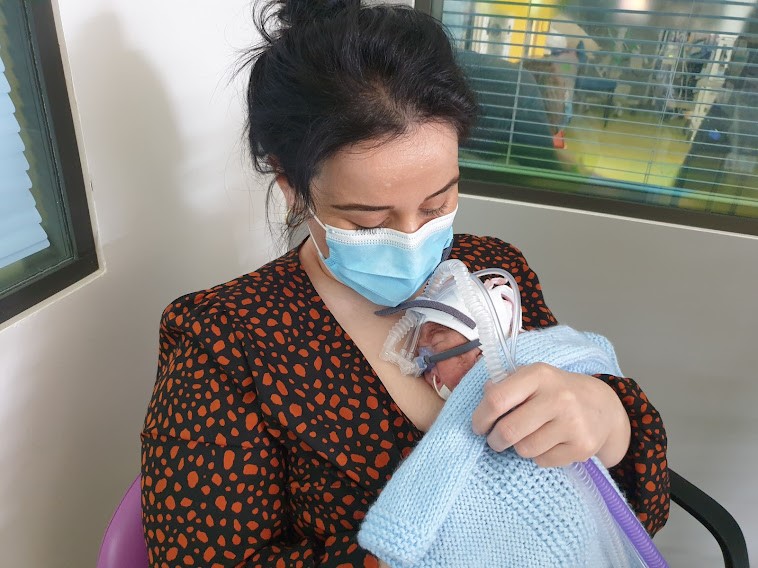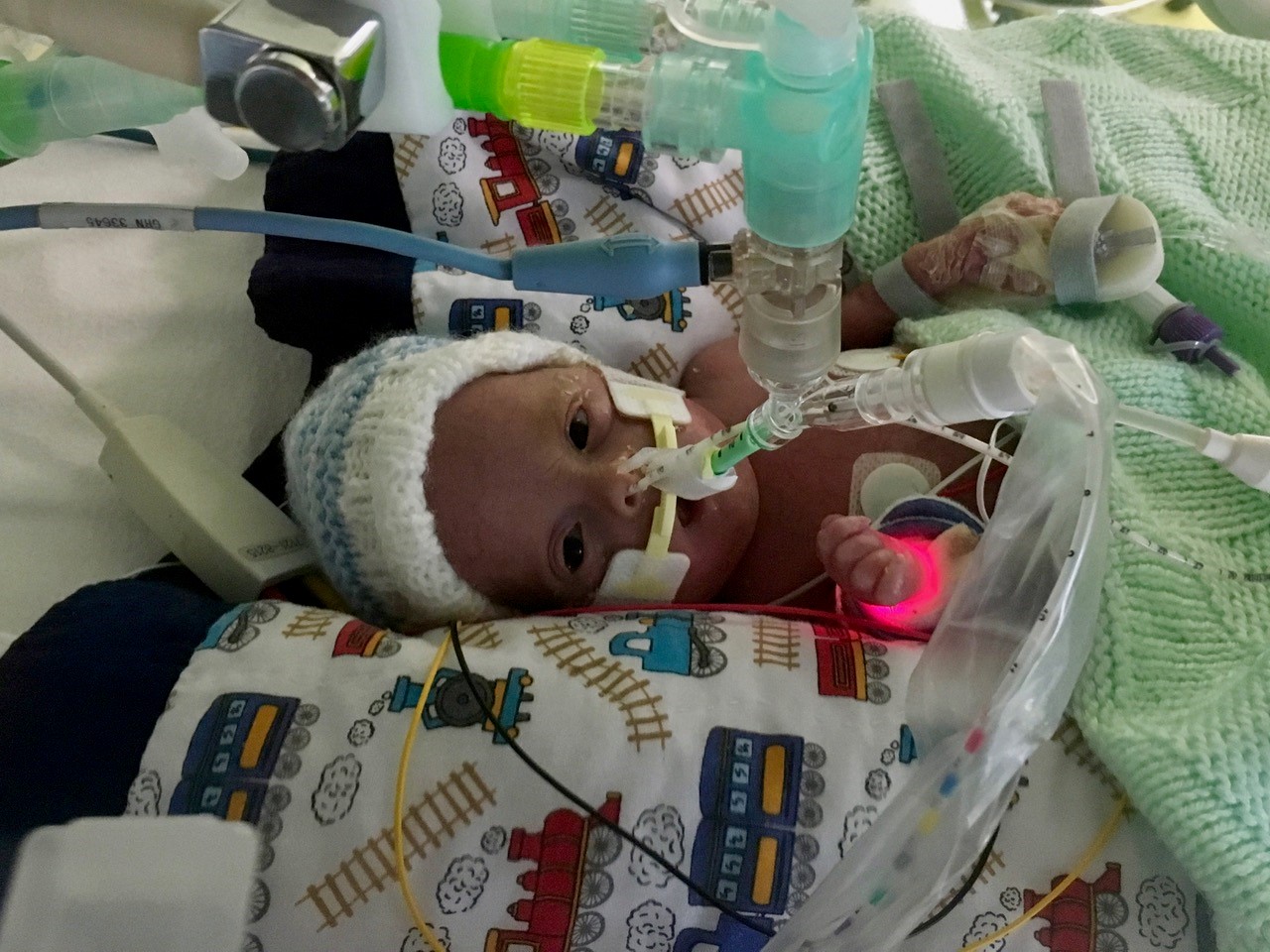Tommy’s National Centre for Preterm Birth Research
Across the UK, 1 in 13 babies are born prematurely (before 37 weeks) – that’s nearly 8% of all live births and around 6 babies every hour. This is higher than the average across Europe and critically, the UK is not on track to meet the government target of reducing premature birth from 8% to 6% by 2025. We think this is simply unacceptable and now is the time to act.
That’s why we’ve opened Tommy’s National Centre for Preterm Birth Research, dedicated to researching the causes and prevention of premature birth.
This collaborative research centre is led by Professor Catherine Williamson from Imperial College London and brings together world-renowned experts in premature birth research from 5 universities:
- Imperial College London
- University College London
- King’s College London
- Queen Mary University of London
- University of Leeds
Why do we need this centre?
“Nobody tells you how defeated you’ll feel when you put your baby back in an incubator and walk down the corridor with empty arms, not knowing if you'll ever bring him home.”
Sheyma, whose son was born at 25 weeks and spent 4 months in hospital.

Some babies who are born prematurely can be very vulnerable and parents may endure agonising months in hospital, unsure of their baby’s future. While most premature babies survive, complications related to premature birth remain the leading cause of death in children under the age of 5. And for those that do survive, there is a chance of permanent disability and long-term health problems, creating lifelong challenges.
We know that ethnicity has an impact on the chances of a baby being born too soon. Since data collection began in 2007, Black families in England and Wales have had higher rates of premature birth than any other ethnic group. Between 2020 and 2021, there was also a big increase in the rate of premature birth among Asian families. This is unacceptable and needs to change.
Tommy’s National Centre for Preterm Birth Research exists to find out more about the causes of premature birth and to discover ways of preventing it. Through the work of this centre, we want to:
- Reduce the rates of premature birth in the UK
- Reduce inequalities in outcomes and access to care
- Improve outcomes for mothers and babies
Tommy’s premature birth research
Premature birth is a complex medical issue with many possible causes. Research is essential if we are to understand it better and improve the care that women and birthing people receive. Even before the creation of Tommy’s National Centre for Preterm Birth Research, we have supported cutting-edge work into the causes and prevention of premature birth:
- Our researchers developed the QUiPP app, a clinical tool that uses test results and medical history to help doctors assess how likely it is that someone will give birth prematurely. The app is now used throughout the UK, supporting doctors and midwives to decide which women and birthing people need further help, and which don’t.
- Our researchers led the UK-wide MAVRIC study, which showed that an abdominal stitch (inserted high in the cervix) can prevent more premature births and save more babies’ lives than a stitch inserted through the vagina, when used to treat women and birthing people who previously had a failed vaginal stitch.
But despite these amazing breakthroughs, a step-change is needed to reduce the number of babies born too soon in the UK and to give a new generation a better start in life.
Tommy’s National Centre for Preterm Birth Research focuses on 3 key themes:
- Exploring the causes of premature birth – understanding why premature birth happens and who is at risk
- Developing new treatments and tests – reducing the chances of premature birth and improving outcomes for those born too soon
- Providing psychological support and improving the experience of parents – understanding how to better support families through premature birth
Read more about our premature birth research
A core mission of this new centre is to reduce inequity in premature birth. The 5 institutions that make up our centre have well-established partnerships with NHS premature birth clinics in diverse areas, and the centre is committed to including women and birthing people from a variety of backgrounds in their research. Because of this, we hope to find out why some minoritised ethnic groups are more likely to experience premature birth so that we can find ways to tackle this problem.
Read more about Tommy’s National Centre for Preterm Birth clinics
“After a month on the NICU, we felt like we were at breaking point. Then we heard the consultant say the words we were dreading – a simple ‘I’m really worried about Isaac’.”
Katharine, whose son Isaac was born at 24 weeks and died when he was 1 month old.

Together we can bring hope to thousands more families across the UK
Right now, research into premature birth is seriously underfunded. Your donation, no matter how small, can help us find the next breakthrough and save babies’ lives.
